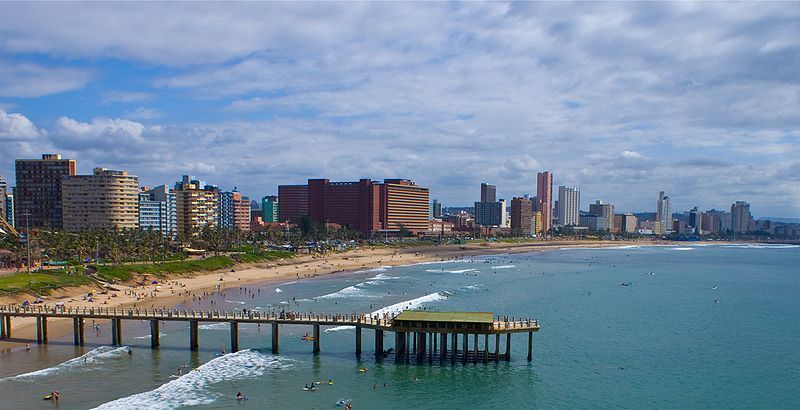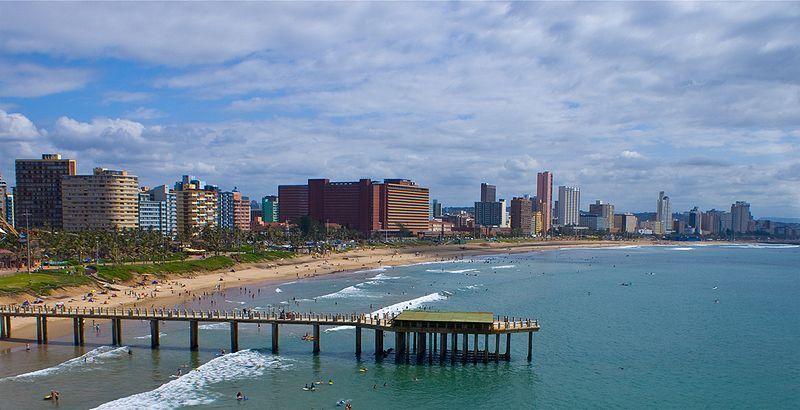Late Durban deal will see global treaty in place by 2015
The annual United Nations climate talks ended yesterday some 36 hours later than scheduled, with a deal to draft a new international treaty by 2015 in place.


The annual United Nations climate talks ended yesterday some 36 hours later than scheduled, with a deal to draft a new international treaty by 2015 in place.
The accord, to be effective from 2020, will be the first legally binding deal that covers all countries, including the world’s biggest polluters the United States, China and India.
The culmination of the 17th United Nations Framework Convention on Climate Change (UNFCCC) also saw the creation of the much debated ‘Green Climate Fund’. The fund will see up to $100 billion a year being used to help poorer nations most at risk and susceptible to climate change. However, what leaders failed to do in Durban was establish exactly where these funds would come from.
The agreement was met with cheers and adulation by delegates gathering in the main conference hall when South Africa's International Relations .jpg) Minister, Maite Nkoana-Mashabane (pictured), called time on the negotiations. “We came here with plan A, and we have concluded this meeting with plan A to save one planet for the future of our children and our grandchildren to come. We have made history,” she said.
Minister, Maite Nkoana-Mashabane (pictured), called time on the negotiations. “We came here with plan A, and we have concluded this meeting with plan A to save one planet for the future of our children and our grandchildren to come. We have made history,” she said.
The overrunning of the conference was largely due to the ongoing dispute between the European Union (EU) and India over the specifications outlined in the proposed Roadmap for the new treaty, with India refraining from signing any such deal that was legally binding. Yet a Brazilian diplomat revised the roadmap so as to appease India and ensure that the application maintained law abiding commitments.
The EU roadmap, drafted in conjunction with the Alliance of Small Island States (Aosis) and the Least Developed Countries (LDCs), and any other such deal seemed a long way away on Thursday night after talks looked to have broken down once more. Nevertheless, parties supporting the roadmap made it clear that the only way of minimizing the warming of the earth’s temperature by 2C was a deal that covered emissions from all nations, especially China. “If there is no legal instrument by which we can make countries responsible for their actions, then we are relegating countries to the fancies of beautiful .jpg) words,” said Karl Hood, Grenada's Foreign Minister, speaking for Aosis. “While they develop, we die; and why should we accept this?”
words,” said Karl Hood, Grenada's Foreign Minister, speaking for Aosis. “While they develop, we die; and why should we accept this?”
In response to the agreement, the UK’s climate change secretary Chris Huhne called the deal a “significant step forward”. “We’ve got a very clear process for dealing with the emissions gap in the interim,” he added. However, there was mixed reaction to the news from environmental campaigners, while some agreed with Huhne that the deal was altogether positive others believe that the accord will do little to steer us away from global temperatures even doubling by 2020. “The agreement here has not in itself taken us off the 4C path we are on,” Michael Jacobs, visiting professor at the Grantham Research Institute on Climate Change and the Environment in London, told the BBC. “But by forcing countries for the first time to admit that their current policies are inadequate and must be strengthened by 2015, it has snatched 2C from the jaws of impossibility.”
Image 01: Steve Roetz | Wikimedia Commons
Image 02: World Economic Forum | Flickr
Image 03: Climate Action Stock Photo
